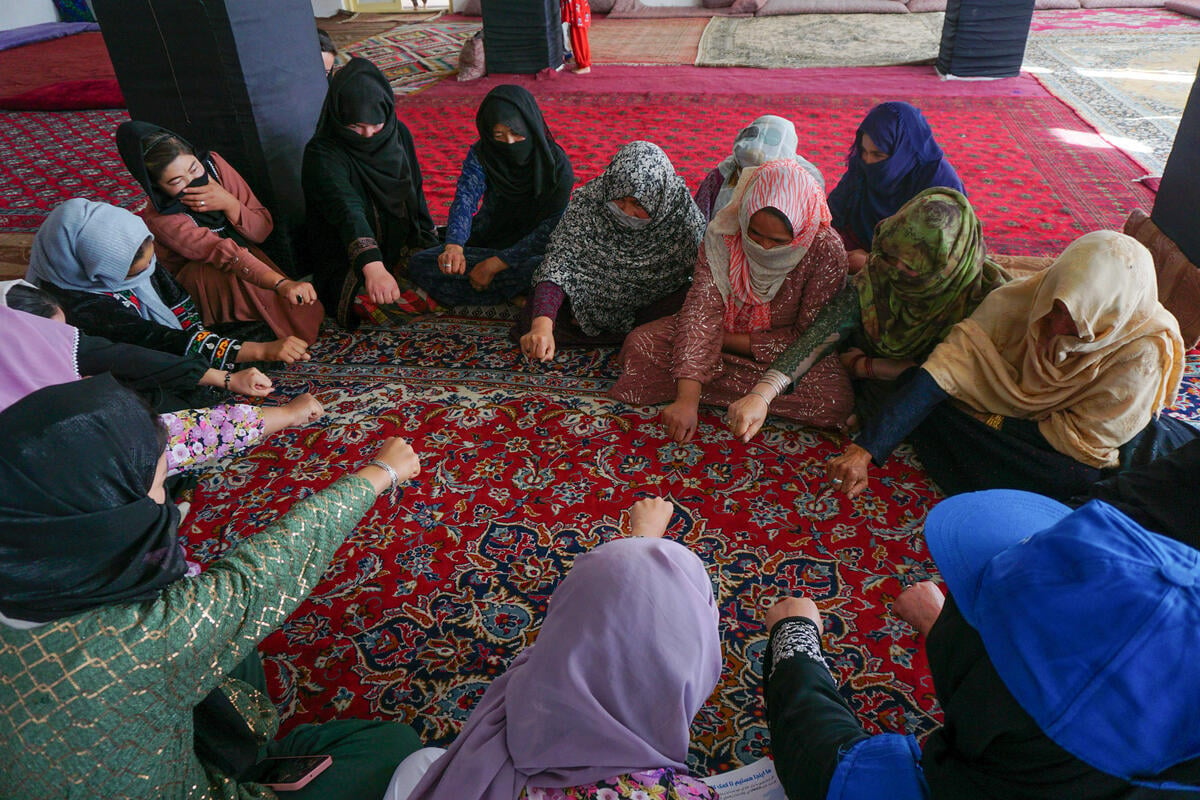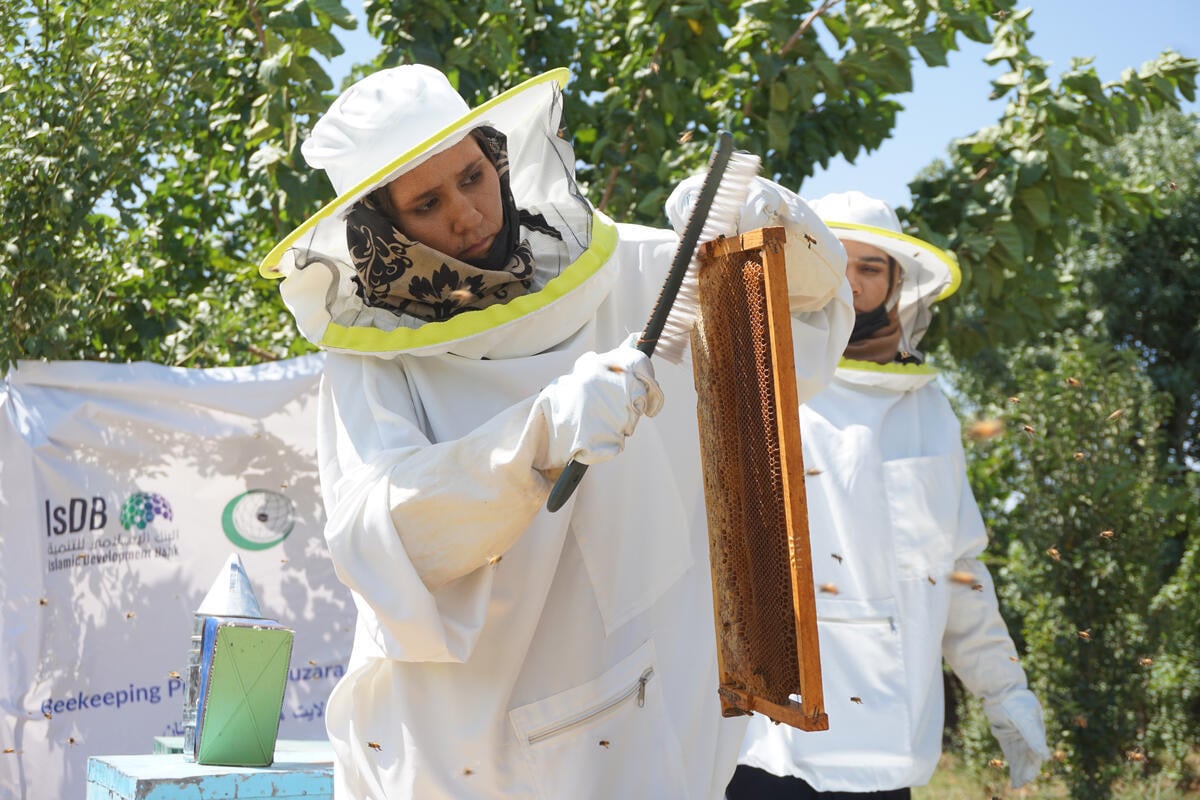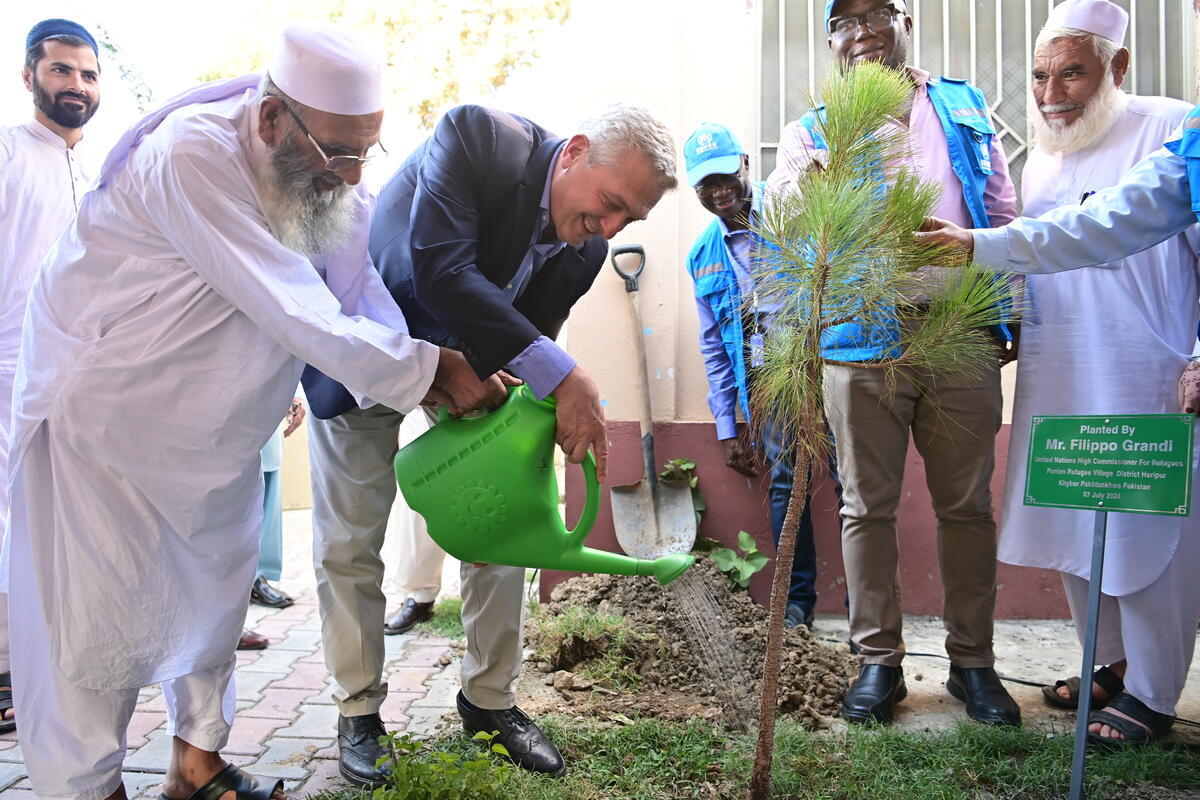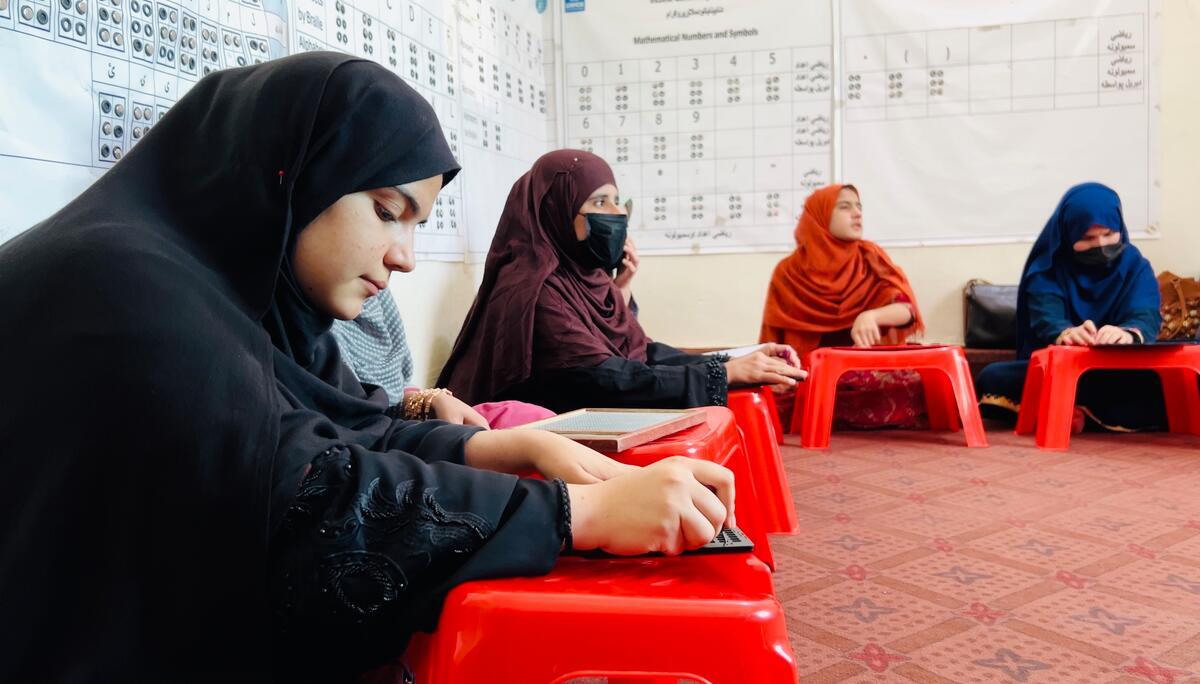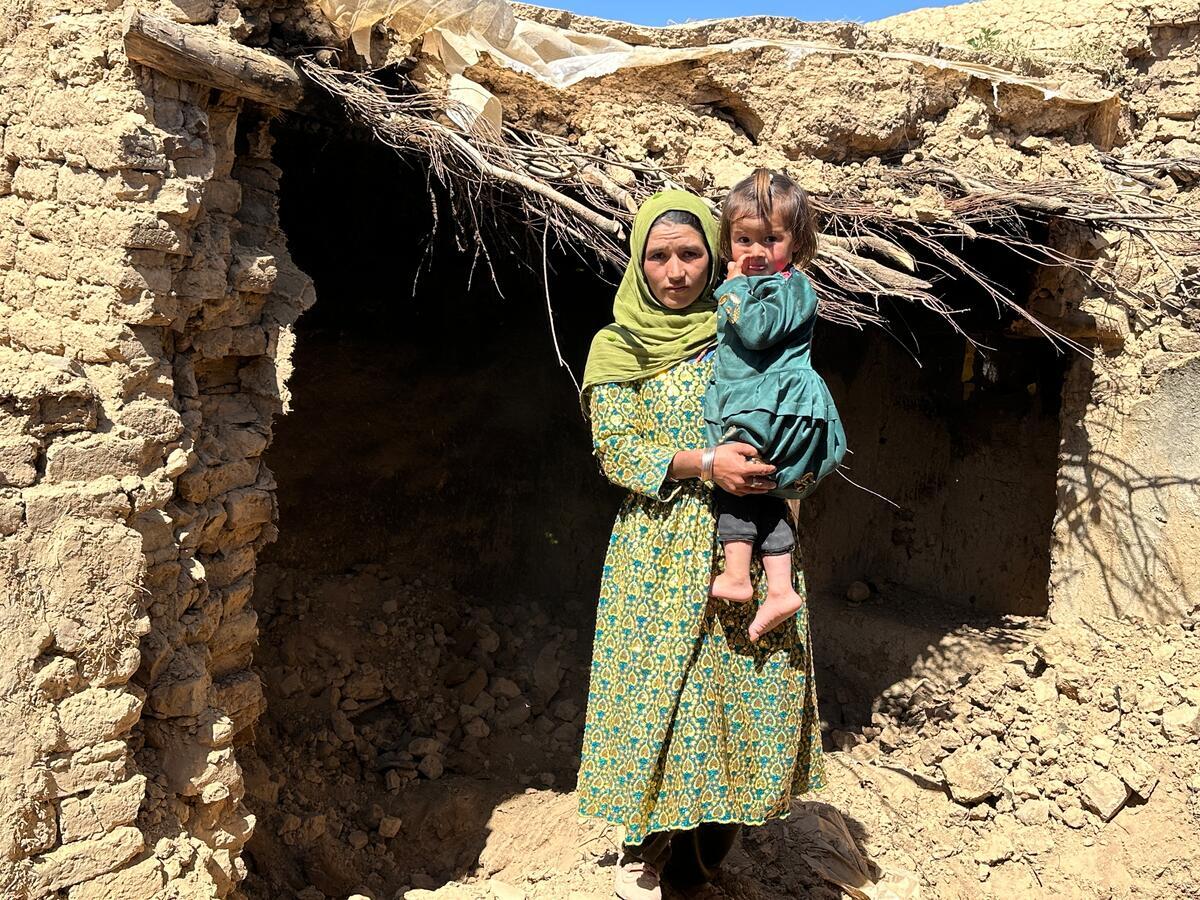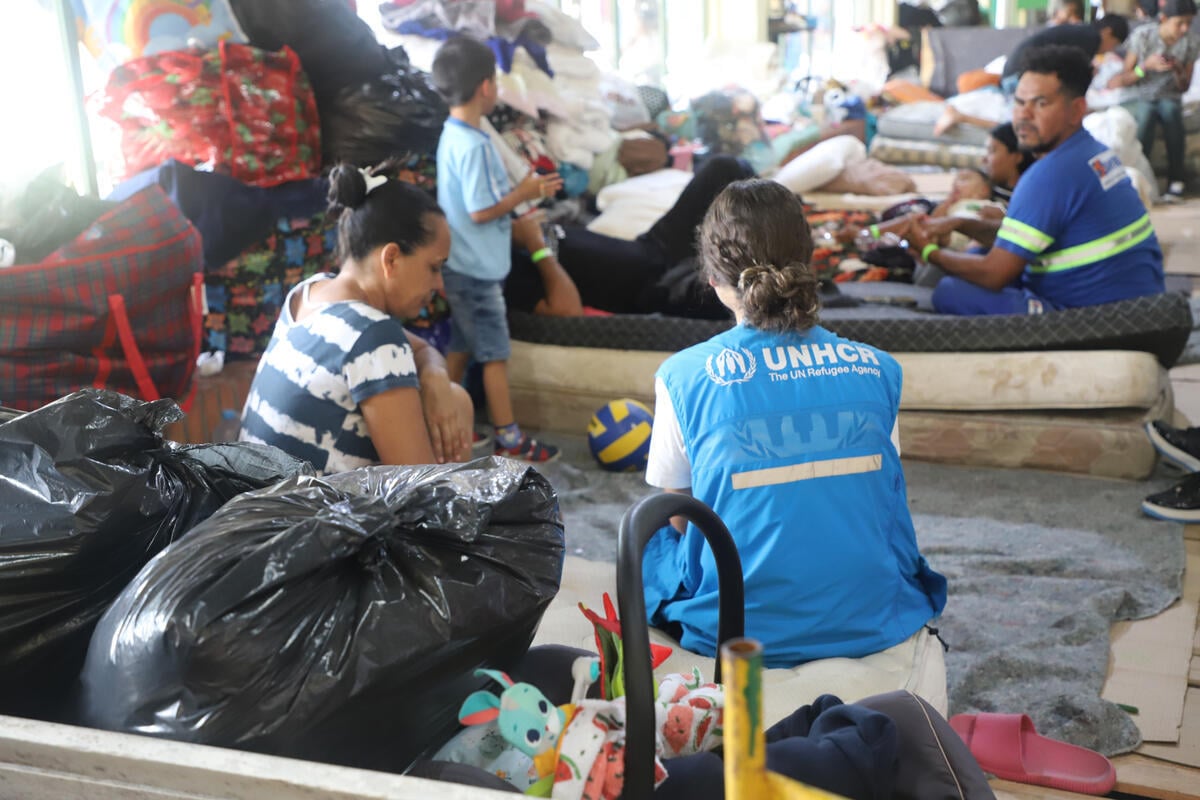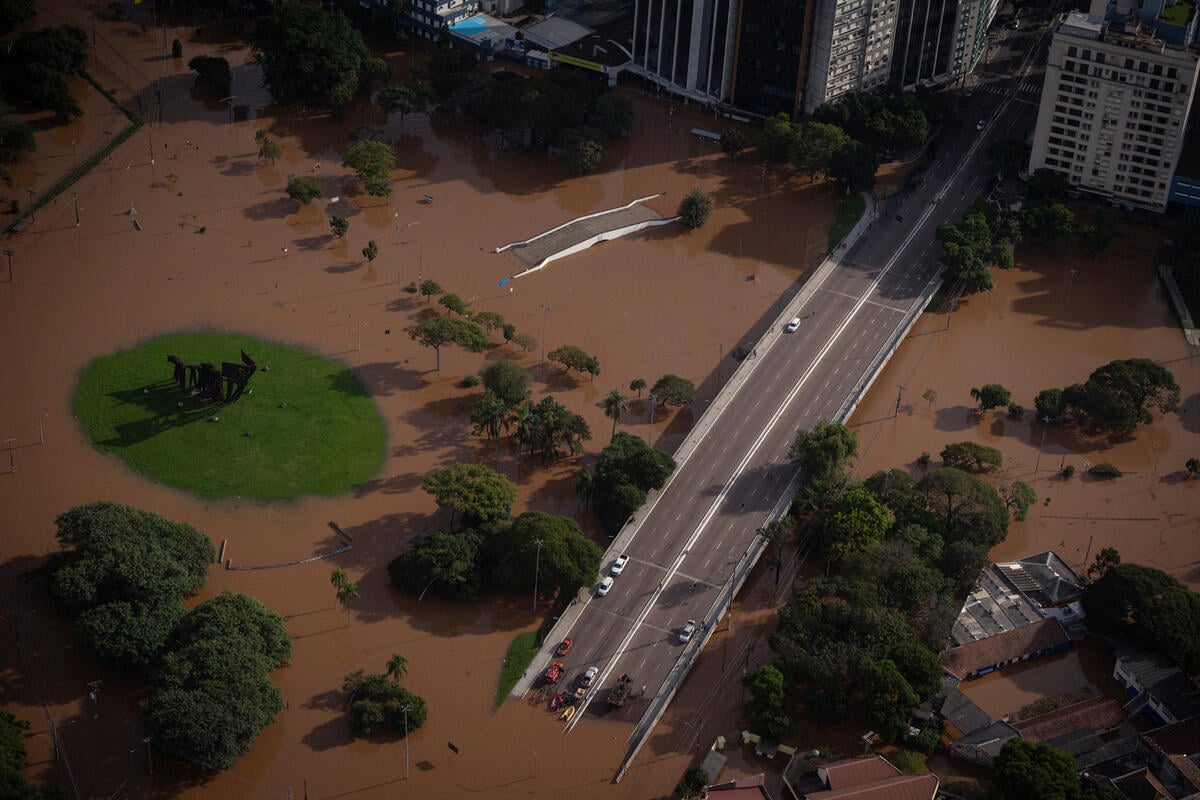Feature: Young refugees in Iran get on the road to recovery
Feature: Young refugees in Iran get on the road to recovery

TEHRAN, Iran (UNHCR) - His favourite colour is red because that is the colour of his favourite soccer team. Young Ahmed is a big fan of Persepolis - Tehran's top football club - along with its rival, Esteghlal. And he would love nothing more than to see the two teams play each other in a stadium. A football fanatic, he scored the winning goal in the school playground today.
He is your typical seven-year-old, with new front teeth, short-cropped hair and an impish smile. You would never think to look at this picture of youthful health that he has been under intensive treatment for cancer for years.
Only two years old when he was diagnosed with cancer of the lymphatic system, Ahmed is one of scores of refugee children in Iran with the disease who have been able to access treatment through a UNHCR-sponsored programme run by an Iranian aid agency.
MAHAK (the Society to Protect Children Suffering from Cancer) specialises in helping young people with various forms of cancer. For the past three years now, the UN refugee agency, in close co-operation with the Iranian government agency responsible for refugee affairs (BAFIA), has been making MAHAK's care and expertise more accessible to young Afghan and Iraqi cancer sufferers.
Through the programme, UNHCR subsidises post-operative and outpatient treatment for eligible refugee children under the age of 14 in a programme costing more than 500 million Iranian rials (about $62,670) a year. The assistance they get under the initiative could include medication, chemotherapy, laboratory tests, scans and funding for family members who accompany children living outside Tehran for treatment in the capital.
Today, Ahmed lives in a suburb of Tehran with his parents and five siblings. His father is unable to work. Like so many Afghans in Iran, he was a casual labourer in the construction industry until an accident left him with a disabled arm.
At 29, Ahmed's soft-spoken mother Fazileh looks much older than her years. But the smile on the weathered face is youthful and determined. "Somehow we survive," she says.
The family fled Kabul and the Taliban in 1998. Just before they left, she had noticed lumps in her son's throat. "There were several," she recalls. "Each as big as a walnut."
Although Fazileh managed to get him to a doctor, the illness was misdiagnosed. It was only when they got to Iran that Ahmed's problem was correctly identified and he was put on the right form of therapy.
The family's flight undoubtedly saved his life. As with many other children who have benefited from the cancer programme, it was a social worker at a children's hospital in Tehran who put Fazileh in touch with MAHAK.
"The doctors didn't tell me what the disease was," recalls Fazileh. "But I knew it was serious and I knew I had to follow their advice and make sure he continued with the treatment."
The treatment included chemotherapy. Little Ahmed lost all his hair but, to this day, he has no idea - and nor do his brothers and sisters - how ill he was.
"He was lucky," says his mother. "He was diagnosed early and his chubby face hid the fact that he was sick."
His parents carried on as though their son wasn't ill - "so it wouldn't have a negative impact".
That decision was both brave and unusual. Often the parents feel hopeless about their children's condition. Many refugee families in Iran have been left vulnerable by the withdrawal of medical subsidies, the high cost of medical care and widespread unemployment. Their poverty makes them see a sick child as a burden. The UNHCR/MAHAK programme offers a counselling service to help them cope.
"The children who are benefiting from the programme have been assessed to see whether their condition stands a good chance of improvement with treatment," says Gitana Naraghi, of UNHCR's Community Services unit. "When we counsel the parents, we tell them not to give up hope for the child."
The UN refugee agency's involvement in the programme came about almost by chance.
"We had noticed several cancer cases turning up at UNHCR's medical referral units or applying for special assistance, so we knew the need was there," recalls Naraghi.
Around the same time, UNHCR was contacted by MAHAK, which had received several refugee children among their young clients. The link between the two organisations was made and, as a result, some 200 children like Ahmed have been able to get treatment on an ongoing basis each year.
Naraghi has seen the UNHCR/MAHAK partnership through its inception, and she values the contact she has had with the children and their parents. "I've often visited the children. And I see a light of hope in their eyes. It means so much to be able to receive help when there is that chance that their condition will improve through treatment."
With the help he has received from MAHAK and UNHCR, young Ahmed's recovery is almost complete. As a toddler, he had to go for treatment every week. Today, he has made such good progress that he only needs a check-up every four months.
Now in first grade, he is getting top marks in his class and enjoying his schoolmates' company. His favourite subject is maths. "It's easy!" he says. The boy wants to be an engineer when he grows up.
"He loves cars," laughs his mother. What Ahmed really wants is to be able to drive his mum around. He remembers when, heavily pregnant with his twin sisters, she carried him on foot to the hospital for treatment.
"He says, 'you've suffered bringing me to hospital so many times,'" says Fazileh, adding, "This is all I want from God - to have a healthy child. That's the most important thing - to be healthy."
By Laura O'Mahony
UNHCR Iran

